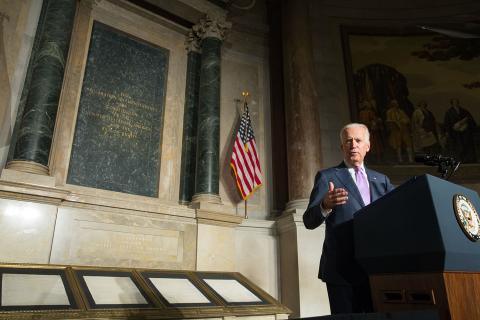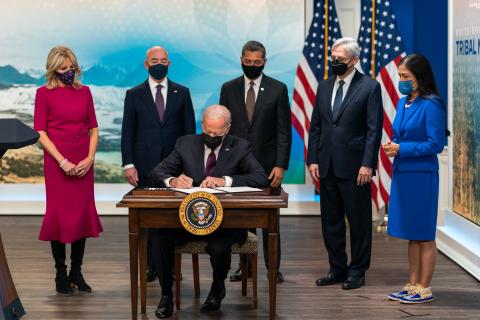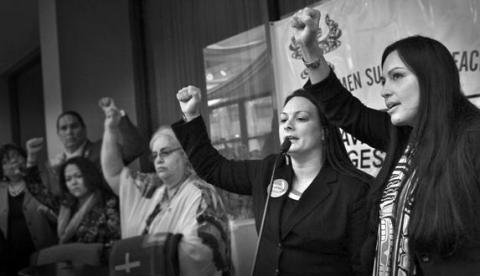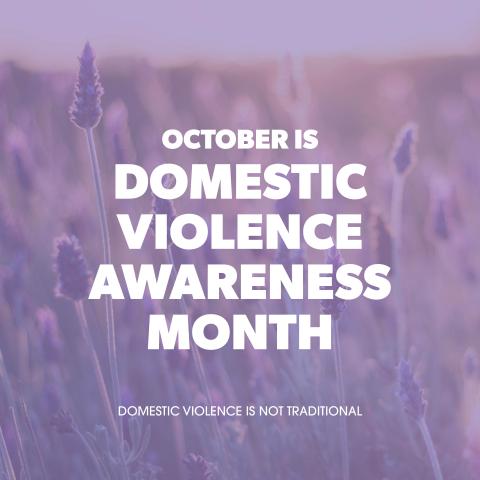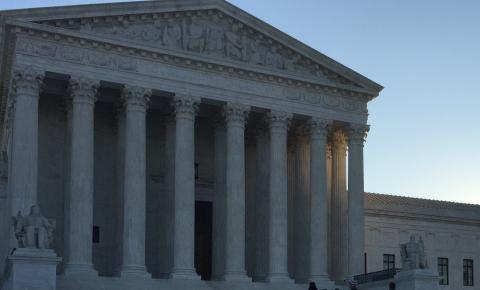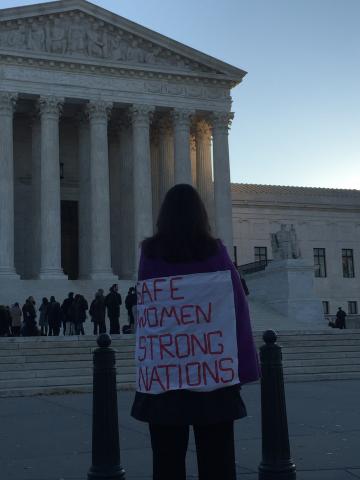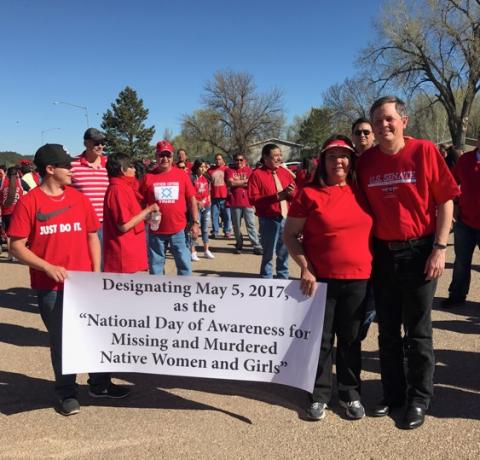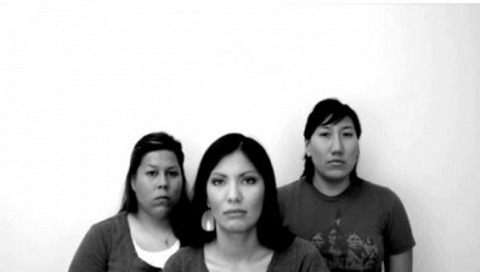You are here
Domestic
White House Tribal Nations Summit Convenes ̶ Executive Order Addressing Missing and Murdered Indigenous People
November 16, 2021 - This week, President Biden fulfilled his campaign promise to revive — after a four-year absence — the annual White House Tribal Nations Summit established during the Obama Administration.
2021 National Week of Action
Take Action for Missing and Murdered Indigenous Women and Girls!
Join us in a National Week of Action (April 29-May 5, 2021) to call the nation and the world to action in honor of missing and murdered Indigenous women and girls (MMIWG). Take action by participating in these virtual events and organizing additional actions in your communities on or around May 5th.
Thursday, April 29, 2021
Savanna’s Act and the Not Invisible Act Signed into Law
On October 10, 2020, two bills were signed into law to help address the crisis of missing and murdered indigenous women in the United States. The bills, which were presented to the President on September 30, 2020, follow years of advocacy by indigenous women, tribes, and Native organizations calling for firm action to combat this human rights issue.
Native Advocacy Organizations Joint Statement for October's Domestic Violence Awareness Month
October 1st marks the first day of Domestic Violence Awareness Month, which offers a critical opportunity to continue to shed light on the issue of domestic violence.
Victory in McGirt v. Oklahoma!
The U.S. Supreme Court held that land in eastern Oklahoma that had been reserved for the Creek Nation in the 1800s remains a reservation today
SCOTUS to Hear Arguments Remotely in May on Reservation Status of Tribal Land in Oklahoma
On April 13, 2020, the U.S. Supreme Court announced it will hear the oral arguments in ten cases by telephone conference on May 4,5,6,11,12, and 13. The Justices and counsel will participate on the call, and live audio feed is expected to be provided to the news media. The Court previously postponed the hearings in these cases due to the coronavirus. The specific argument dates will be assigned at a future date.
Reservation Status of Tribal Land Under Attack Before the U.S. Supreme Court
The opening brief in McGirt v. Oklahoma was filed with the U.S. Supreme Court on February 4, 2020. At issue is whether the State of Oklahoma can prosecute an enrolled member of the Muscogee (Creek) Nation for crimes committed within the historical Creek reservation boundaries.
Supreme Court fails to issue a decision in Carpenter v. Murphy on final day of its term ̶ Court to rehear case
On June 27, 2019, the final day of its term, the U.S. Supreme Court unexpectedly failed to issue a decision in Carpenter v. Murphy. Many consider Murphy one of the Court’s most consequential and closely-watched Indian law cases in recent history. It also stands as the oldest case on the Court’s docket without a decision, surpassing the 200 days taken to resolve Dollar General Corporation v. Mississippi Band of Choctaw Indians.
The Court will rehear the case next term.
DOJ Declares Law Enforcement Emergency in Rural Alaska
On June 28, 2019 the U.S. Department of Justice declared a law enforcement emergency in rural Alaska and announced new funding for the law enforcement needs of Alaska Native villages. This funding includes $6 million dollars for the State of Alaska to hire law enforcement officers in rural Alaska, and another $4.5 million dollars that will be available to Alaska Native villages for similar purposes. The Department of Justice also announced a series of additional measures, including a sexual assault training program and a new Rural Alaska Violent Crime Reduction Working Group led by U.S.
Identical Bills to Address Missing and Murdered Indigenous Women Introduced
The Not Invisible Act of 2019, S. 982, is a bipartisan bill introduced on April 2, 2019 by Senators Catherine Cortez Masto (D-NV), Lisa Murkowski (R-AK), and Jon Tester (D-MT), that seeks to engage law enforcement, tribal leaders, federal partners, and service providers to respond to the crisis of missing, murdered, and trafficked indigenous people. The bill also would create an advisory committee to the Department of the Interior and the Department of Justice, comprised of tribal, local, and federal stakeholders.
VAWA Reauthorization Bill With Strengthened Tribal Provisions Advances Out of the House
The Reauthorization of the Violence Against Women Act 2019 (HR 1585) passed the House of Representatives on April 4, 2019 with bipartisan support. The bill now moves for consideration in the U.S. Senate.
Legislative Update – 116th Congress (2019-2020)
February 26, 2019 | Several bills have been introduced in the Senate thus far this year that could help address the epidemic levels of violence against indigenous women. Additionally, Congress recently passed the FY 2019 omnibus appropriations measure ending the historic government shut down, but also failing to reauthorize or extend the Violence Against Women Act.
Harassment pervades the Bureau of Indian Affairs
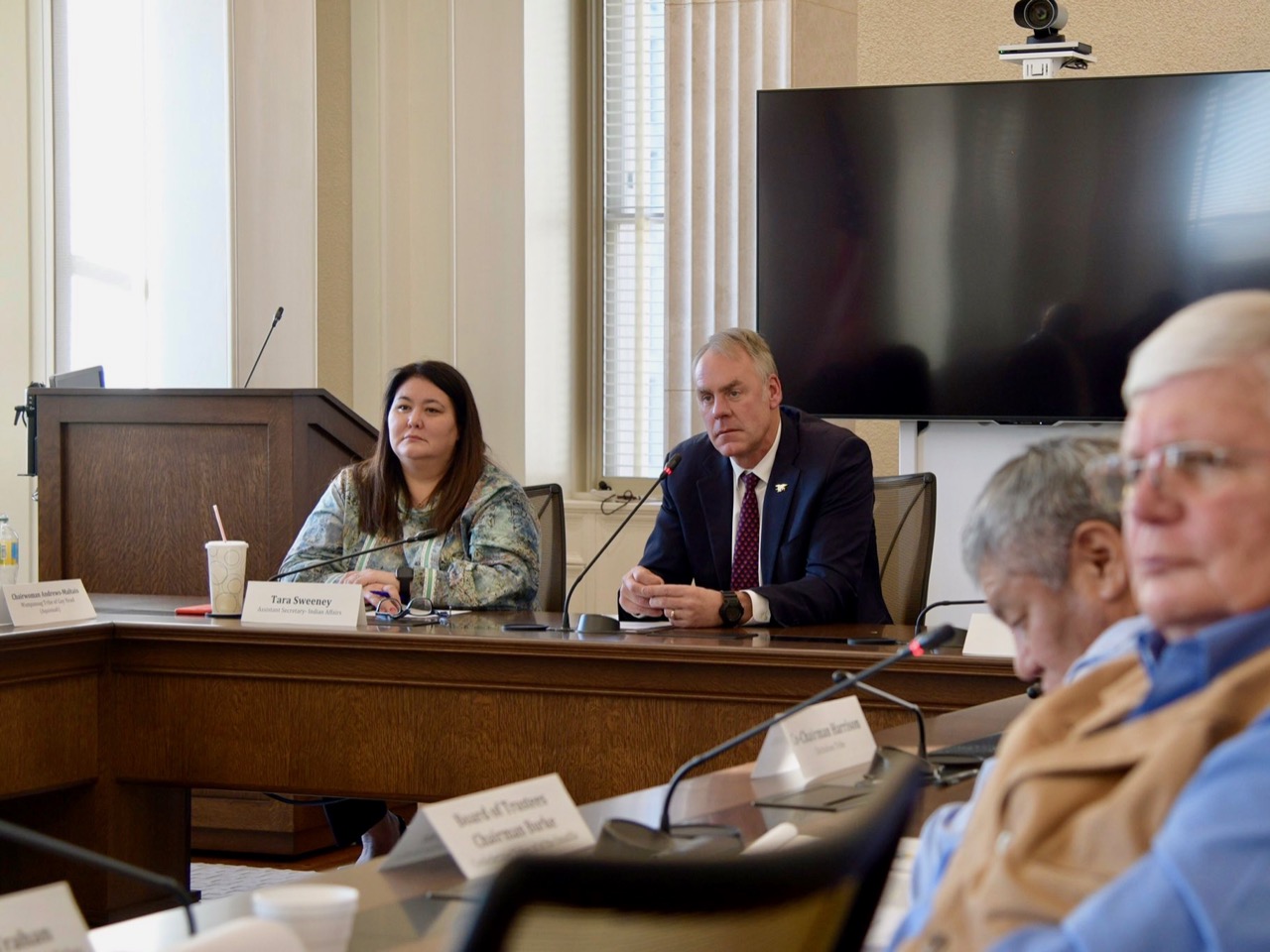 Link:
https://www.hcn.org/issues/50.6/tribal-affairs-harassment-pervades-interiors-bur…
Link:
https://www.hcn.org/issues/50.6/tribal-affairs-harassment-pervades-interiors-bur… Program:
Savanna's Act Would Address Violence Against Native American Women — But One Lawmaker's Stalling It
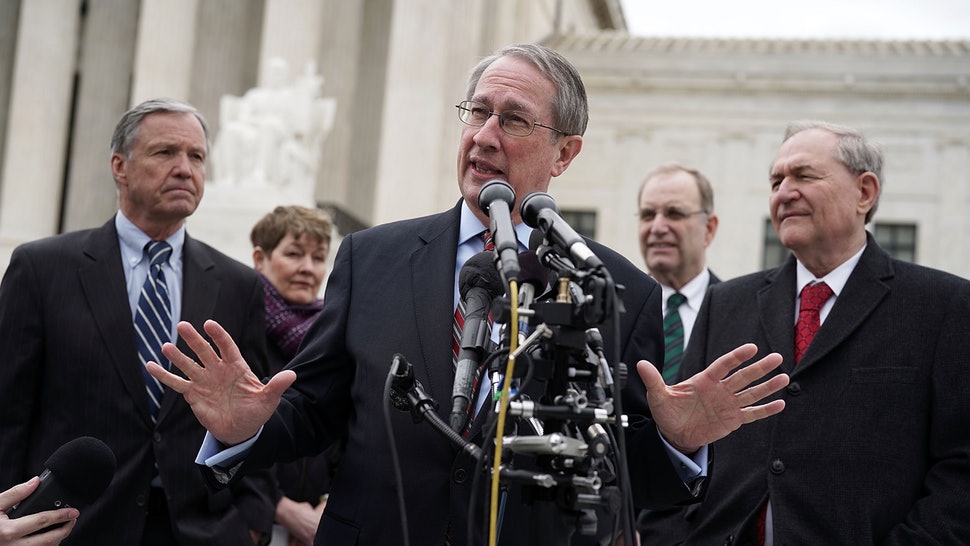 Link:
https://www.bustle.com/p/savannas-act-would-address-violence-against-native-amer…
Link:
https://www.bustle.com/p/savannas-act-would-address-violence-against-native-amer… Program:
Supreme Court decision in Carpenter v. Murphy could have significant consequences on safety for Native women
Today, the United States Supreme Court hears oral arguments in Carpenter v. Murphy, a case that will determine whether the Creek Nation’s reservation in Oklahoma was diminished or disestablished and whether the state had jurisdiction to prosecute a crime committed by an Indian in Indian country. Although the case is about the prosecution of a murder, the Court’s decision could have significant implications for Indian nations wanting to use the expanded tribal criminal jurisdiction provisions authorized in the 2013 Violence Against Women Act to provide safety to their women. This is because the restored tribal criminal jurisdiction in VAWA is contingent on the acts of domestic violence or dating violence against Native women occurring in Indian country. The Center was part of the team bringing the Court’s attention to how the case will impact Indian nations in Oklahoma and throughout the United States seeking to protect women and children from domestic violence and dating violence in Indian country.
Special Collections: International Advocacy to Help End Violence Against Native Women
This Special Collection is intended to provide information and resources on how to use international advocacy in our work to end violence against Native women and girls. In addition to tribal, state, and federal resources, international law and procedures offer American Indian and Alaska Native women additional advocacy opportunities to raise global awareness about the epidemic of violence against indigenous women in the United States.
Domestic Advocacy
Program:
Senate Resolution designates May 5, 2018 as a National Day of Awareness for Missing and Murdered Native Women
On July 5, 2013, Hanna Harris, a member of the Northern Cheyenne Tribe, was reported missing by her family in Lame Deer, Montana. When her body was found five days later, she had been raped and murdered. “Too often in Indian country and Alaska Native villages indigenous women are disappearing and nothing is done,” says Jana Walker, director of the Indian Law Resource Center’s Safe Women, Strong Nations project.
Highlights of Key Pending Legislation relating to violence against indigenous women
Building on the success of the Tribal Law and Order Act and the Violence Against Women Reauthorization Act of 2013, several bipartisan bills have been introduced into the United States Senate to address violence against indigenous women.

